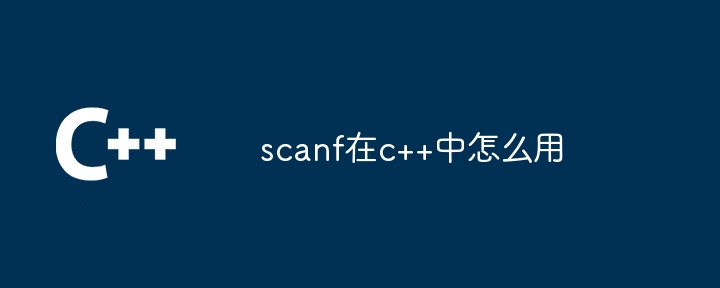
The scanf function is used to read formatted data from standard input. Format specifiers specify the type and format of the input data, such as %d for integers and %f for floating point numbers. The syntax is int scanf(const char *format, ...), where format specifies the format string and ... is a pointer to the variable where the data is to be stored.

Usage of scanf in C
#scanf function is used in the standard I/O library in C to read from Functions for reading formatted data from standard input. It is similar to the printf function and is used to format output.
Syntax:
1 |
|
Parameters:
Return value:
Returns the number of successfully read input items. If EOF (end of file) is encountered, return EOF (-1).
Format specifier:
The format specifier is used to specify the type and format of the input data. Here are some common format specifiers:
| Format Specifier | Data Type |
|---|---|
| %c | Character |
| %d | Integer |
| %f | Floating point number |
| %s | String |
##Usage example:
The following example demonstrates how to use the scanf function to read an integer value:1 2 |
|
Note:
The above is the detailed content of How to use scanf in c++. For more information, please follow other related articles on the PHP Chinese website!
 What are the differences between c++ and c language
What are the differences between c++ and c language
 Recommended learning order for c++ and python
Recommended learning order for c++ and python
 Cost-effectiveness analysis of learning python and c++
Cost-effectiveness analysis of learning python and c++
 Is c language the same as c++?
Is c language the same as c++?
 Which is better to learn first, c language or c++?
Which is better to learn first, c language or c++?
 The difference and connection between c language and c++
The difference and connection between c language and c++
 C++ software Chinese change tutorial
C++ software Chinese change tutorial
 Cost-effectiveness analysis of learning python, java and c++
Cost-effectiveness analysis of learning python, java and c++




